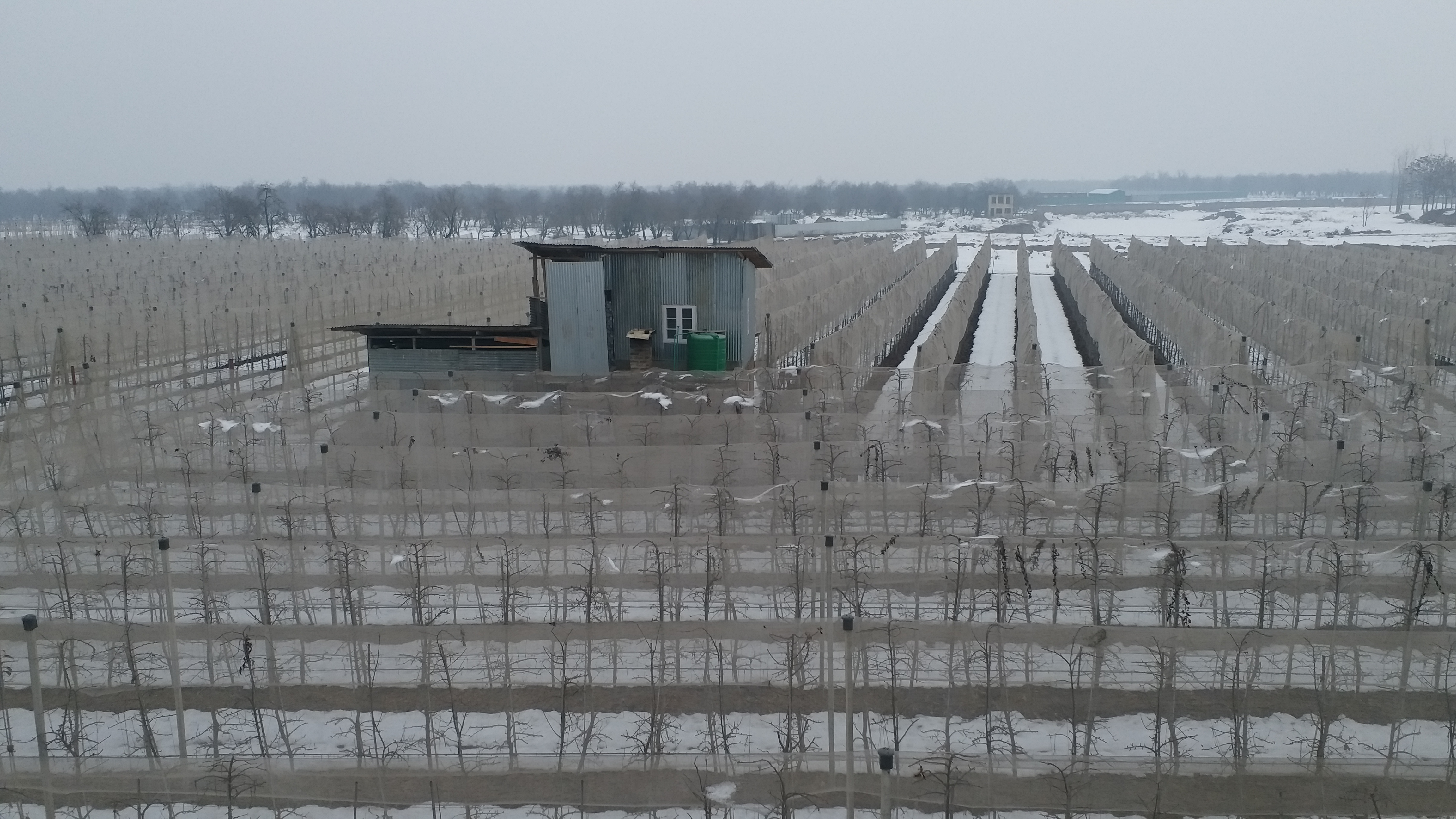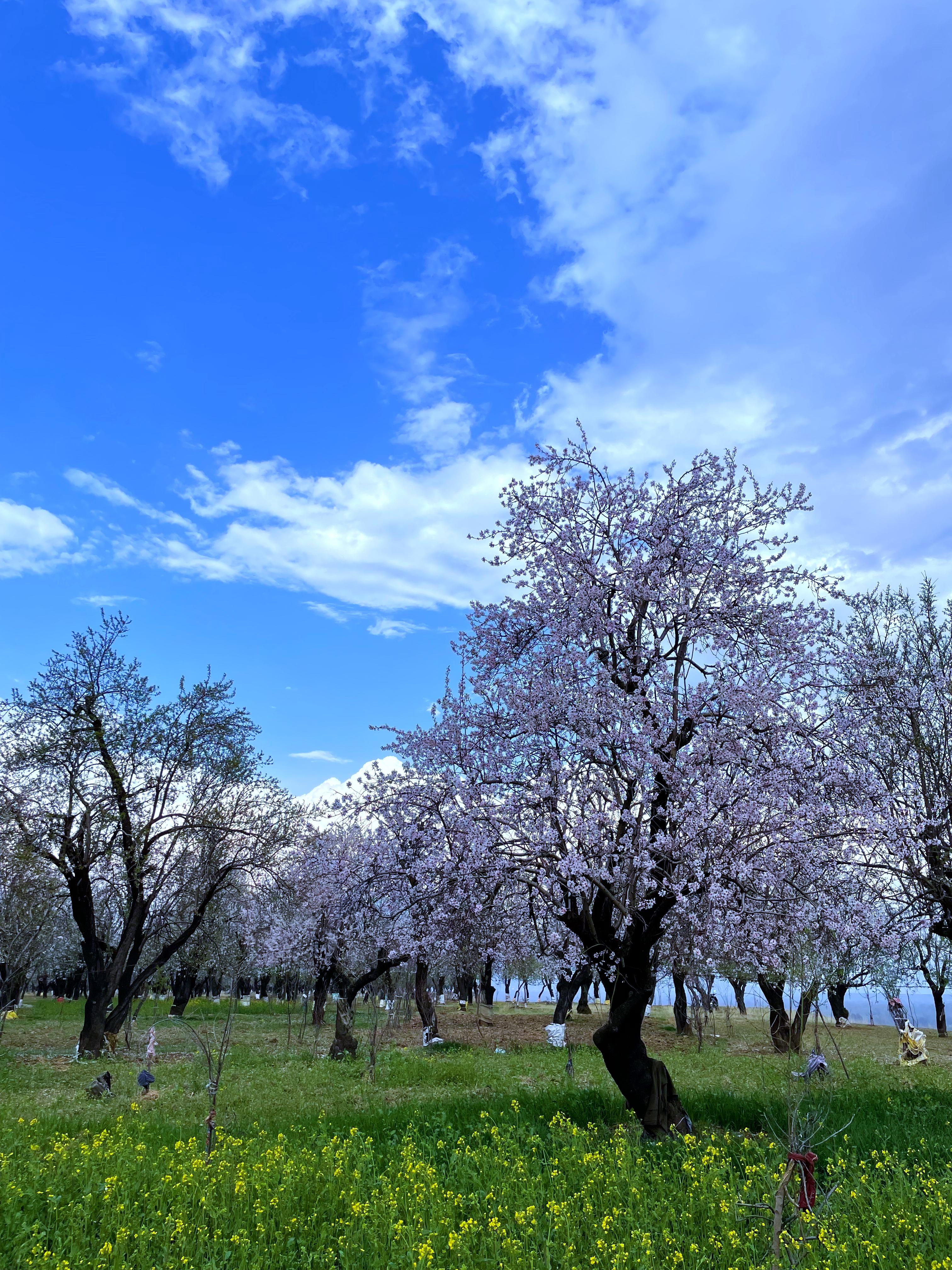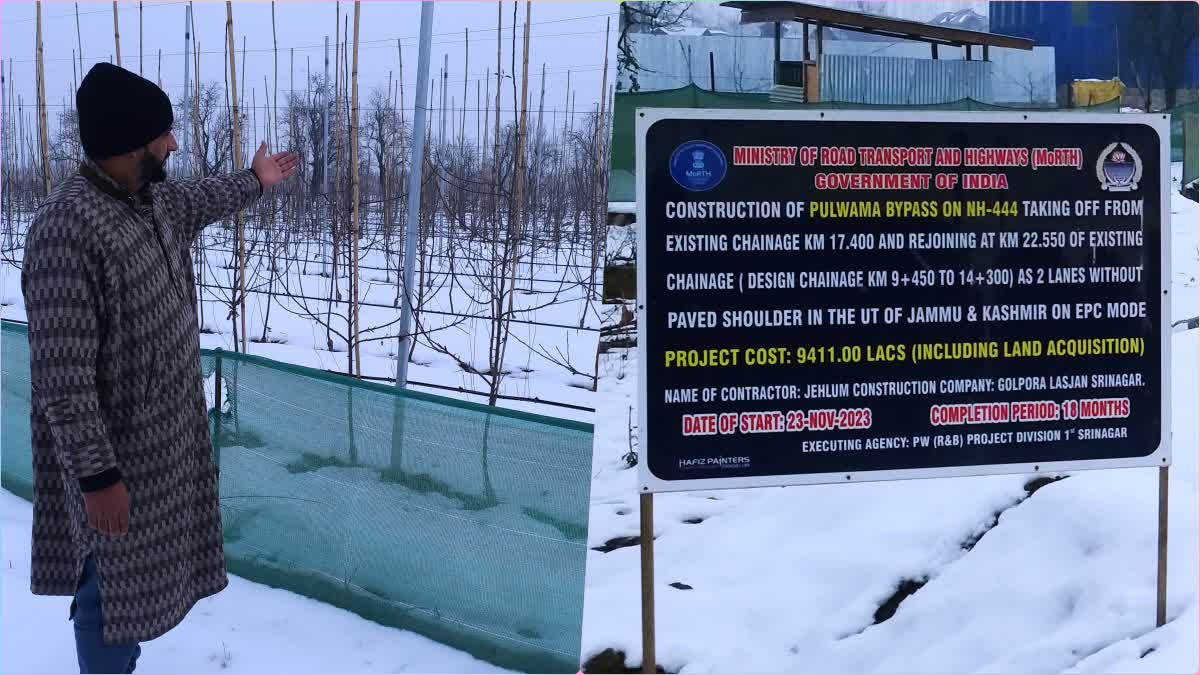Srinagar: Younis Wani, who holds a doctorate in English, was unable to get an academic job despite his best efforts. However, he thought of an idea to earn his livelihood. Wani turned his family's almond orchard into a high-density apple orchard and received support from the Jammu and Kashmir government to thrive in the modern apple-growing system.
Now Wani, who invested Rs 24 lakhs in his 24 kanals of land in Newa village in the Pulwama district, risks getting dispossessed from the land and his livelihood. The fear began after the government notified that it needed the sprawling 4,834 kanals and 19 marlas of state land for a new campus of the National Institute of Technology (NIT).
The NIT already exists on hundreds of kanals of land in Hazratbal, Srinagar, near the University of Kashmir. Situated on the banks of Dal Lake, this institute enrols 3000 engineering graduates from across the country every year.
The notification by Deputy Commissioner (DC) Pulwama set off a wave of fear and anxiety in Wani’s village, whose residents depend on their livelihood on the Karewa land where the new campus is being proposed.
“I have taken a bank loan and invested Rs 24 lakhs in the last three years to convert our ancestral almond orchard into a high-density apple orchard. Now, I am worried about my loss of livelihood and the land that my family has cultivated for decades,” Wani told ETV Bharat.

The Jammu and Kashmir government launched the high-density apple scheme in 2015 when the PDP and BJP were in a coalition government. Since then, farmers in the valley have converted their old orchards into horticultural land, aiming to earn a better income and run their families.
Like Wani, hundreds of other farmers in Newa and other adjacent villages—Gudoora, Ugurgund, Karimabad, Lonapora, Zadoora, Daffarpora, Malwari, Urwan, Parigam, Kultreh, Barigund, Bahrampora, Baghat-e-Kanipora—are fearing dispossession by the proposal of the new NIT on the Karewa. All these villages with around two lakh populations are perched in the foothills of elevated Karewas, whose fertile land, sprawling from Budgam to Pulwama districts, is the main source of livelihood for thousands of farmers who have cultivated almond trees for decades. The majority of them are now converting into apple orchards. The loss of this land would not only disrupt their economic stability but also thrust them into widespread poverty.
“Our family has spent more than Rs 50 lakhs to convert almond orchards into high-density apple orchards. We have also spent our blood and sweat on it for the last five years; now the fear of losing it is devastating for us,” another orchardist, Nazar-ul-Islam, told ETV Bharat.
The young man in his 30s has now given up studies to prefer apple farming as his source of income, and so has Abdul Majid Khan, an elderly man in his 70s, who invested Rs 15 lakh in his seven kanals of land to shift to high-density apple farming.

Since the notification was issued by the DC Pulwama, the farmers, amid the freezing winter, are going up every day into the Karewas and surrounding their orchards. Some farmers are seen kissing and hugging the trees and praying and hoping that the government finds an alternate site for the NIT campus.
“We are not against development, but the government must prefer barren land for the projects rather than cultivable land like Karewas,” Khan said.
Jammu and Kashmir is fast losing its agricultural and horticultural land due to mega-projects like highways, railway lines, and other industrial projects. As per the agriculture department, the paddy land has shrunk from 162,309 hectares in 2012 to 129,000 hectares in 2023—a decrease of 33,309 hectares. Because of this land shrinking and conversion, experts have predicted a lurking food crisis and poverty in the valley where people use rice as a staple food and cultivate apples for livelihood.
The wave of dispossession of land has spread across the south Kashmir districts of Pulwama, Shopian, and Anantnag, where the government is proposing a new railway track and two highways.
For the last few months, farmers in Shopian, Pulwama, Bijbehara, and Kulgam have been protesting against the proposed construction of a new 77-kilometre railway track that is being surveyed through apple orchards and paddy land in these districts. The Ministry of Railways has surveyed apple orchards in these districts and is planning to take away thousands of kanals of land for the new rail line, which will connect the existing track with these districts.
The Minister of Transport and Highways is constructing National Highway 444 through Pulwama and Shopian and will connect it with the existing Srinagar-Jammu Highway near Bijbehara in Anantnag district. This highway has already dispossessed farmers of their productive horticultural and agricultural land for small amounts of monetary compensation.

The Srinagar-Jammu Highway took away paddy land from farmers. The NH 444 also snatched thousands of Kanals of land from farmers; a new highway, 701 A, is being proposed from Rajouri to Gulmarg. A new railway track is proposed through apple orchards and paddy land. If this is not dispossession of farmers in the name of development, what else is it? I vehemently oppose the construction of these projects on orchard and paddy land,” Mohidin Mir, legislator of the ruling National Conference, told ETV Bharat.
The NH 444, a new proposed railway track, will pass through Newa village, where NIT is proposed, and will again dispossess farmers of more land.
Wani, whose orchard is at risk of the proposed NIT campus, will lose his paddy land if the railway track is built in his area. “We will become completely landless if NIT is built on Karewa land and a new railway track on our paddy land. We will be left with our house only,” he said.
When the NIT proposal was announced, the Newa residents rushed to the residence of Chief Minister Omar Abdullah, who assured them of redressal. “If the people of Pulwama (Newa) don't want the NIT in their area, we can relocate it. People in other districts will welcome the NIT campus with open arms,” Omar told ETV Bharat in his first media interaction.
The chief minister, in response to the question from this reporter, said the government will strike a balance so that the productive land is saved from rampant conversion and development. “We will have to find a balance between our development needs and also protecting our productive agricultural lands,” he said.
People in Newa and other south Kashmir areas are now eagerly awaiting the chief minister to come true to his words to save them from becoming landless.
Read More



